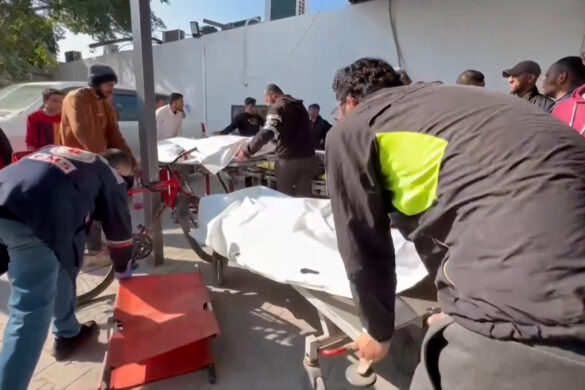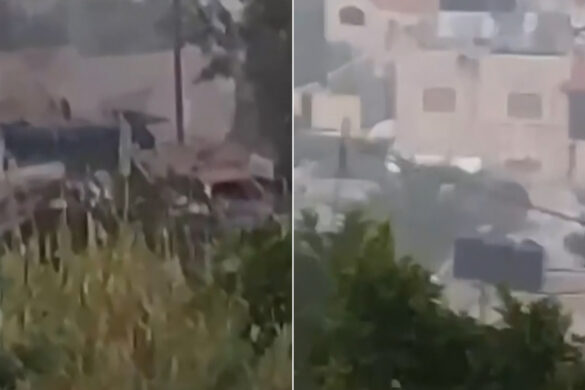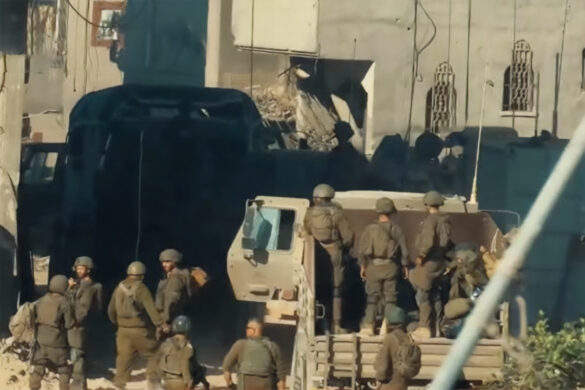Occupied Jerusalem- Under the title “Crucial Lifeline: Reopening the Humanitarian Corridor for Emergency Medical Care from Gaza to East Jerusalem Hospitals,” a conference was held at the Augusta Victoria Hospital (Al-Mutala’) in the Mount of Olives, in the city of Jerusalem, to which human rights organizations and the media were invited.
The conference was organized by the East Jerusalem Hospital Network in cooperation with Physicians for Human Rights with the aim of discussing the urgent need to reopen the humanitarian corridor from the Gaza Strip to Jerusalem in light of the need of about 25,000 Gazans for life-saving medical care, and in light of the suffering of more than 12,000 Gazans from cancer.
The director of Al-Mutalaa Hospital and the East Jerusalem Hospital Network, Dr. Fadi Al-Atrash, said in his speech that they do not see any immediate solutions for Gazan cancer patients whose access to treatment at the hospital has been cut off since the outbreak of the war on Gaza on October 7, 2023, and therefore this conference was held.
Al-Atrash added that doctors in Gaza are unable to provide any treatment to cancer patients due to its lack, and yet they are still opening clinics to receive them.
According to Al-Mutalaa Hospital’s data, which Dr. Al-Atrash shared with the attendees, 1,750 invasive cancer patients arrived at the hospital from the beginning of 2023 until the beginning of October in which the war broke out, and that 800 patients were unable to be received by the hospital since the outbreak of the war until February of the year. 2024, and they were scheduled to enter the beginning.
At the conclusion of his speech, Al-Atrash said that 60% of cancer patients in Gaza have died and are dying from pain due to the interruption of treatment, and that a safe corridor must be opened for them to reach Jerusalem for treatment and then returned after its completion safely to the rest of Gaza.
In his intervention, the representative of the World Health Organization in the occupied Palestinian territories, Dr. Rick Pepperkorn, stressed the importance of facilitating the arrival of humanitarian aid, noting “the urgent need for medical supplies, evacuating patients, and allowing humanitarian teams to enter Gaza to provide life-saving care.”
As for the Director General of the Princess Basma Rehabilitation Center in Jerusalem, Violet Mubarak, she called for urgent action to save the rights of children with disabilities in Gaza in conjunction with the world’s celebration of the International Day of Persons with Disabilities, stressing that every child in Gaza deserves to receive early medical intervention and life-saving services.
In turn, Executive Director of Physicians for Human Rights, Guy Shalev, called for international support, saying, “The suffering in Gaza cannot be ignored. Reopening the humanitarian corridor is the only sustainable solution to the ongoing medical emergency that costs lives every day.”
The speakers at the conference recommended taking three basic measures: establishing safe corridors for medical evacuation and providing ways for patients to receive urgent care in hospitals in East Jerusalem, the West Bank, or outside the country, in addition to ending family separation by calling for no child to travel alone during the medical trip, and finally ensuring return. Safe transportation for patients after treatment to the Gaza Strip without them having to choose between their health and their homeland.




